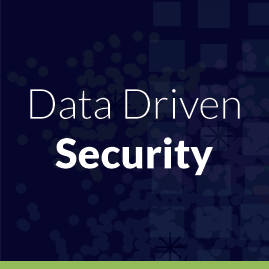By Jay Jacobs (@jayjacobs)
Tue 07 July 2015
|
tags:
blog,
-- (permalink)
I was recently asked for advice on hiring someone for a data science role. I gave some quick answers but thought the topic deserved more thought because I’ve not only had the experience of hiring for data science but also interviewing (I have recently changed jobs - hello BitSight!). So without much of an intro, here are the top 5 pieces of advice I would give to any company trying to hire a data scientist.
Put data where their mouth is
This is probably the single best piece of advice I can give and should help you understand more about a candidate then any set of questions. At first, I was surprised when a company gave me a large file to explore and report back on, but in hindsight it’s brilliant. It’s clever because (as I’ve learned), most applicants can talk the talk, but there is a lot of variation in the walks. If at all possible, you should use data from your environment, preferably a sample of data they’d be working on. Don’t expect them to build a complex model or anything, just ask them to come back with either a written report and/or verbal presentation on what the data is.
You are looking for three very critical skills. First, you should expect them to identify one or more interesting questions about the data. A big skill of working with data is identifying good questions that can be answered by the data. The good and interesting parts are very critical because many questions are easy, but good questions that are interesting and that deserved to be answered is where skill comes in. Second, look for the train of thought and evidence of building on previous work. You are asking them to do exploratory data analysis, which is all about building up the analyst’s intuition about the data. Be sure you see signs of discovery and learning (about the data, not the analysis). Third, you are looking for their communication skills. Can they present on data-driven topics? Did they leverage visualizations to explain what they’ve learned? And that bridges into the next bit of advice…
Don’t be afraid to look dumb.
I’m sorry to say that I’ve seen a whole lot of bad research being accepted at face value because people were too afraid say something thinking they would look dumb. If something doesn’t make sense, or doesn’t quite smell right, speak up and ask for clarification on whatever doesn’t sit right. The worst you can do is to just assume they must be right since it seems like they know what they are talking about. I’m serious about this. I’ve seen entire rooms of people nodding their heads to someone saying the equivalent of 2 + 2 = 5. Speak up and ask for clarification. It’s okay if you don’t get something, this is why you want to hire a data scientist anyway. You won’t discover what’s really going on under the surface until you dig a little and unfortunately it can be tricky. What you want to know is that they can talk you like an equal and explain things to a satisfactory level. Remember if they can’t explain the simple things in an interview, how will they explain more complex topics on the job?
Don’t try to stump candidates
The flip side to asking for explanations is a bit of a personal pet peeve. Some interviewers like to pull together technical questions to see if the candidate knows their facts. But here’s a not-so-little secret, data scientists (like everyone else) do much better work with the internet than without. Don’t put them on the spot and ask them to verbally explain the intricacies of the such-n-such algorithm or to list all the assumptions in a specific modeling technique. If these types of questions are critical to the job do a written set of questions and let them use the tools they would use on the job. Sure, you’d like to ensure they know their stuff, but ask technical questions broadly and don’t expect a single specific answer, but just see if they can talk about what things they would need to look out for.
Find out what they have done.
Ask about projects they have done and I like to follow the STAR format: situation, task, actions and results. First have then describe a situation, problem or challenge, then have them talk about the tasks or what they needed to achieve in order to resolve the situation (build a classifier, perform regression, etc). Then find out exactly what they contributed and what their actions were. Be sure to hone in on their role, especially if the project is done in academia where teams of research are more common. Finally how did it turn out (the results)? How did they evaluate their work and did the results meet expectations? Having them talk through a project like that should help you get to know them a little more.
Don’t hold out for a full-stack data scientist
Ideally, a good “full stack” data scientist will have the following skills:
- Domain expertise - understanding of the industry is helpful at every stage of analyses.
- Good programming skills - perhaps look for public examples (github)
- Statistics – because data uses it own langauge
- Machine learning – because sometimes machines can be better, fast and smarter than you and I
- Data management – the data has to live somewhere
- Visualizations – data science is pointless unless it can be communicated.
But don’t hold out for the full stack of skills. Every candidate will be stronger in one or two of these than the rest, so identify what skills are critical to the role and what may not be as important. Than hire for those strengths.
Hope those are helpful, if you have more, leave a comment with your ideas and tips!
Tweet